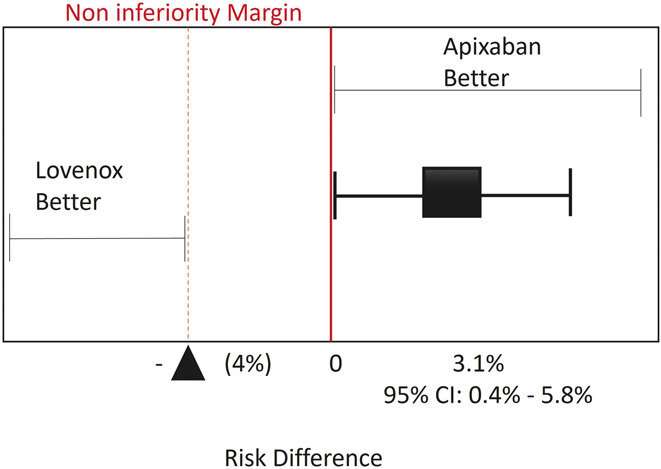
The oral anticoagulant drug apixaban may offer a safer, more effective alternative to standard home heparin injections for patients taking extended prophylaxis (EP) to prevent blood-clot-related complications after surgery, reports a study in the Journal of Urology.
“Apixaban is non-inferior to enoxaparin for EP after urologic oncology surgery,” according to the report by lead author Mary Elizabeth Westerman, MD, senior author Surena F. Matin, MD, and colleagues of The University of Texas MD Anderson Cancer Center, Houston. “Based on these results, apixaban is now our departmental standard.”
No major complications—and fewer ‘compliance events’—with oral apixaban
Patients undergoing major surgery for abdominopelvic cancers often receive several weeks of treatment with anti-clotting medications to lower their risk of venous thromboembolism (VTE). A VTE is a clot that develops in the veins, which can lead to serious problems like poor blood circulation in the legs (deep vein thrombosis) or blockage of the arteries leading to the lungs (pulmonary embolism).
The standard form of EP for VTE prevention is daily self-injection with the anti-clotting drug enoxaparin (or in some cases three times a day with heparin). Although enoxaparin is effective, previous studies have reported numerous barriers to its use—especially problems related to daily home injections.
Recent studies have reported promising results with apixaban: one of a group of newer direct oral anticoagulants (DOACs). As part of a quality improvement (QI) project, the researchers prospectively analyzed 315 patients undergoing extended-duration VTE prophylaxis after major surgery for abdominopelvic cancers—mainly bladder, prostate, or kidney cancer.
A group of 161 patients were prescribed standard EP with injectable enoxaparin. The comparison group included 154 patients who received oral treatment with apixaban. The analysis focused on “compliance events” related to VTE prevention, including changes in the intended medication for patient-related and other factors, including cost; and skipped medication doses, as reported by patients. The study was designed to determine whether apixaban could improve compliance with VTE, without compromising patient safety.
None of the patients receiving apixaban had major complications (major bleeding or VTE), compared to 3.1% with injectable enoxaparin. That was within the “non-inferiority” threshold established for the study—in other words, use of apixaban was not worse than the standard. Rates of minor complications, hospital readmissions, and emergency department visits were similar between groups.
Meanwhile, the overall rate of compliance events was significantly lower with apixaban: 14.3%, compared to 33.5% with enoxaparin. That may have at least partly reflected the high percentage (over 90%) of apixaban prescriptions filled by the pharmacy at the authors’ hospital. Patients in the apixaban group were more likely to have a $0 copay for their medication—likely reflecting the availability of manufacturer coupons.
Source: Read Full Article